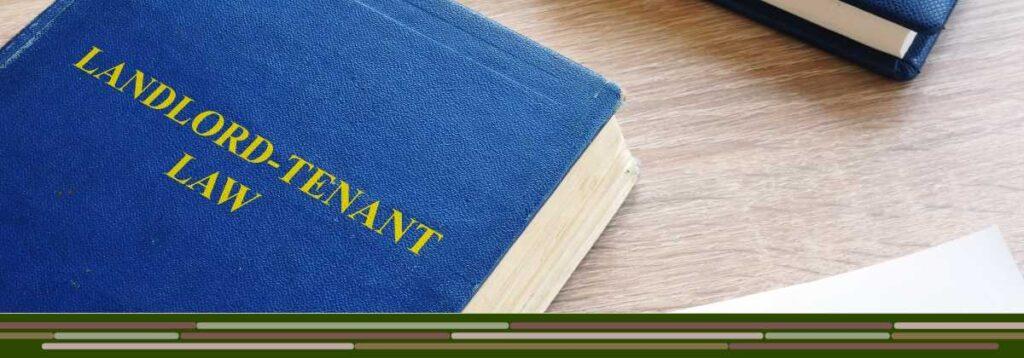Eviction Laws: A Guide for Connecticut Landlords and Real Estate Investors
Attorney Kate Cerrone

Navigating the legal landscape of real estate can be daunting, especially when it comes to eviction laws. As a landlord in Connecticut, understanding these laws is crucial. It’s not just about protecting your investment, it’s also about ensuring fair treatment of your tenants.
This guide aims to simplify Connecticut’s eviction laws. Understanding the proper procedures is crucial, as even small mistakes can result in dismissed cases and delayed resolutions. Here’s what Connecticut landlords need to know about the eviction process.
Legal Grounds for Eviction in Connecticut
Under Connecticut General Statutes section 47a-23(a), landlords must establish valid legal grounds before initiating an eviction. The most common reason is nonpayment of rent, where tenants have failed to meet their financial obligations under the lease. When a lease is ending and won’t be renewed, this creates a “lapse of time” ground for eviction. Nuisance behavior that causes damage or creates danger for other tenants or the landlord can also justify eviction. Additionally, landlords may evict when a tenant’s right to occupy the property has terminated, such as when someone who was initially permitted to stay is no longer welcome.
The Notice to Quit: Your First Step
The eviction process begins with serving a Notice to Quit, a critical document that requires careful preparation. This notice serves as formal communication to your tenants about the impending eviction and must include specific details about why you’re pursuing eviction and when they need to vacate the property. One crucial aspect often overlooked is the requirement to name all adult occupants in the notice, though minor children should not be included. The property description must be precise and complete, including unit numbers or other identifying details where applicable.
Perhaps most importantly, the Notice to Quit must be served by a state marshal or other authorized officer. Many landlords make the mistake of trying to serve the notice themselves or through an unauthorized person, which can invalidate the entire eviction process before it truly begins.
Understanding Notice Periods and Timeline Requirements
The timing requirements for evictions in Connecticut are complex and vary based on several factors. At minimum, tenants must receive three full days to vacate before you can file a Summary Process action. However, for properties covered under the CARES Act, particularly those with federally backed mortgages or receiving certain federal subsidies, a longer 30-day notice period may be required.
Some situations necessitate a Pre-Termination Notice, also known as a KAPA Notice, which must be served 15 days before the Notice to Quit. This applies particularly in cases involving nuisance claims or material noncompliance with lease terms. Additionally, Connecticut law now requires a Right to Counsel Notice to be included with both the initial Notice to Quit and subsequent court filings, ensuring tenants are aware of their legal rights.
Filing the Summary Process Action
When a tenant remains in the property beyond the date specified in your Notice to Quit, the next step is filing a Summary Process action with the court. This involves preparing a detailed Complaint that outlines your case for eviction, along with a Summons to formally notify the tenant of the legal proceedings. It’s crucial that your Complaint precisely matches the grounds stated in your Notice to Quit – you cannot add new reasons for eviction later in the process.
Timing is critical here as well, with specific requirements for when documents must be served and filed with the court.
Professional Guidance Matters
Through my years of practice, I’ve seen countless eviction cases derailed by seemingly minor oversights. Common issues include landlords, missing required notices for federally subsidized properties, or failing to properly document all adult occupants. Working with an experienced real estate attorney can help navigate these potential pitfalls and ensure your eviction proceeds efficiently.
Consulting with a Real Estate Attorney
Engaging an attorney who is knowledgeable in both evictions and real estate can simplify the complexities of eviction laws. Professional legal advice helps tailor solutions to specific situations. Attorneys provide invaluable guidance to avoid legal pitfalls. Their expertise ensures that landlords make informed decisions throughout the eviction process.
As a Real Estate Attorney who also handles evictions, I help real estate investors protect their investments while maximizing their returns through personalized legal guidance.
Want to maximize your return? Call my office today at 860-928-2429 or visit KateCerroneLaw.com to schedule a comprehensive consultation.
Disclaimer: The information you obtain at this site is not, nor is it intended to be, legal advice. You should consult an attorney for advice regarding your individual situation. We invite you to contact us and welcome your calls, letters and electronic mail. Contacting us does not create an attorney-client relationship. Please do not send any confidential information to us until such time as an attorney-client relationship has been established.
The information you obtain at this site is not, nor is it intended to be, legal advice. You should consult an attorney for advice regarding your individual situation. We invite you to contact us and welcome your calls, letters and electronic mail. Contacting us does not create an attorney-client relationship. Please do not send any confidential information to us until such time as an attorney-client relationship has been established.

Attorney Kate Cerrone
REQUST A CONSULTATION
"*" indicates required fields
WATCH




